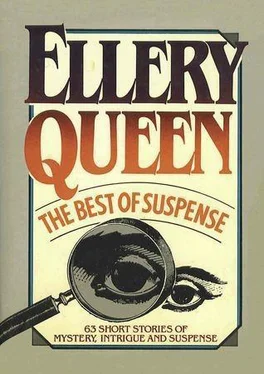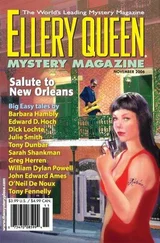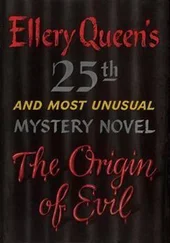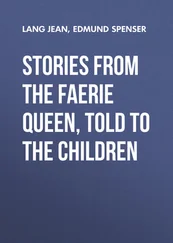Mirabel’s enthusiasm knew no bounds. She threw herself heart and soul into executing the role he assigned to her. She was a dynamo of activity. Our office in the Pollexfen Press Building looked out on Covent Garden, from which rose the clip-clopping hoofbeats of the horses drawing tumbrils ablaze with flowers, while market porters bustled about with tall, round towers of fruit-baskets balanced on their heads in the sunshine.
We were untroubled by Lord Pollexfen, as Raffles had insisted on full editorial control. Raffles himself was active in the background on our behalf and, thanks to his influence, marvellous literary material came in, for merely token fees, from some of the greatest names in the world of sport.
What with this, and with Mirabel’s aptitude and energy, my own task in putting together our first issue was far from onerous. Usually, at about noon, I would suggest that I take her to lunch, for she looked charming in the blue skirt and white shirtwaist, crisp and businesslike, which she wore to the office. But it was rarely that she would leave her work.
“You go ahead, Mr. Manders,” she said. “I shall just have a sandwich and a cigarette.”
She made out that she smoked Sullivans, like Raffles, but I knew this was just a gesture of emancipation, as cigarettes made her cough. But I would leave her to it and saunter across the Strand, hustling with hansoms in the sunshine, for a leisurely lunch and a few rubbers of whist at my club in the Adelphi, dropping back to the office at about four o’clock for a last supervisory look round before returning to my Mount Street flat to take a tub and dress for dinner. It was not a bad life, the editorial life.
I sent Raffles a card, care of the Vice-Chancellor of Oxford University, whose guest he was while playing cricket there, to let him know when the foundry proofs, the final proofs of our first issue fully made-up, were due from the printers, the McWhirter Printing & Engraving Company, in Long Acre. He turned up, looking tanned and fit, the same morning as the proofs arrived and was very pleased with them.
“A great job, Bunny! You and Mirabel have done wonders. Our first issue’s a corker. It’ll open a new era in sporting journalism.”
There was a knock on the door. Lord Pollexfen strode in.
“Ah, good morning, Raffles,” he said. “Good morning, Manders. Mr. McWhirter, the Master Printer, tells me he’s delivered your foundry proofs. I’d like a look at them before deciding how many thousands of copies to venture on as a printing order.”
Raffles handed him the proofs, and I offered him a sherry-and-bitters, which Raffles and I were drinking as a mid-morning refreshment. The peer shook his head, pushed his silk hat to the back of it, and, still standing, screwed his monocle into his eye to examine the proofs.
“A splendid Contents page, gentlemen,” he said. “Such names! John L. Sullivan — Lord Lonsdale of the Lonsdale Belts — Sir Harry Preston on the subject of Tod Sloan, the great jockey — Vardon on golf — Prince Ranjisinjhi on tiger-shooting! Excellent! Outstanding!”
“We owe those contributions to our Editor,” I said, indicating Raffles, who was sitting on the edge of my desk, swinging a leg idly.
“I foresaw something of this, of course, when I approached him,” said the Press baron. “I knew what I was doing. I always do.” He turned the pages. His smile faded. “What’s this? What are these interpolated effusions by women?”
“Those are articles,” Raffles said, “obtained by our Contributing Editor from various eminent ladies with active tastes.”
“But good God, man! John L. Sullivan’s article on boxing followed by some female whining about the exclusion of her sex from witnessing the bouts staged at the National Sporting Club? This is monstrously out of place, Raffles!”
“I’m sorry to hear you say that, Pollexfen,” said Raffles.
“And here again — the great Harry Vardon on golf immediately followed by some woman bleating about the need for a more socially acceptable kind of garment as a first step to eradicating the insult to her sex in their being obliged to drive off more favoured tees than the men. What provocative nonsense! What does the idiotic woman mean — ‘a more socially acceptable kind of garment’?”
“It’s shown there in the illustrations,” Raffles said. “One illustration depicts the hampering effect on the golf swing of ankle-length skirt and petticoats in a high wind. The contrasting illustration shows the healthful freedom, both physical and psychological, provided by a garment, a form of trousering, specially designed by our own Contributing Editor.”
“This disgraceful illustration,” the peer said angrily, “appears to have been posed for by that young woman in the other office. I’ve seen her before somewhere. Isn’t she the one who threw the bomb at Lord’s?”
“Indeed yes,” said Raffles. “Our Contributing Editor.”
Lord Pollexfen threw the proof down on my desk. “I will not publish a magazine polluted through and through with this kind of subversive stuff. It’s entirely contrary to the policy of the Pollexfen Press, which is to keep women contented in their homes. I’m deeply disappointed, Raffles. This issue will have to be remade, omitting the offensive material. And call that young woman in. I intend to dismiss her instantly.”
“I’m sorry, Pollexfen,” Raffles said quietly. “ I engaged Miss Renny. As a matter of principle, I will neither dismiss her nor alter one word of this first issue of my magazine.”
“Then, by God, you must look elsewhere for a publisher!”
“In that case, Manders and I will publish the magazine from our own resources. Shall we not, Bunny?”
“Certainly, Raffles,” I said, wondering uneasily what resources he was talking about, as we both were overdrawn at the bank.
“I warn you,” said the Press peer, glaring haughtily through his monocle. “A. J. Raffles is not the only name to conjure with on the sports horizon. I shall seek a superior name for my sports magazine — and use the entire financial resources of the Pollexfen Press to crush any amateurish attempt at a rival publication.”
“That is your privilege,” Raffles said courteously.
“I also decline,” barked the peer, “to be responsible for expenses incurred to date, including McWhirter’s bill, and I shall require vacant possession of this office by six P.M. today.”
He stalked out, slamming the door.
Raffles chuckled. “In chivalric terms, Bunny, there goes a male rampant, mounted on a prejudice, in a field ensanguined. Of course, this was inevitable.”
“You expected it?” I said, astonished.
“I counted on it, Bunny.” He offered me a cigarette from his case. “Well, now, first things first. We’re without premises. We’re overdrawn at the bank, but the manager’s a cricketer and a good friend. He won’t mind our using the bank as an accommodation address. Got a pencil handy? Take down this announcement.”
Lighting my cigarette and his own, he paced thoughtfully.
“ ‘Owing,’ ” he dictated. “ ‘to the refusal of the original publisher to permit the expression of female opinion, and therefore withdrawing financial support, prospective contributors to A. J. Raffles’ Magazine, which hopes soon to publish under less prejudiced auspices, are notified that unsolicited contributions should be submitted to The Editor, R affles’ Magazine, care of County and Confidential Bank, Berkeley Square, London, accompanied by a stamped, self-addressed envelope for return if unsuitable.’ That’s the conventional wording, I think, Bunny?”
“Well, more or less,” I said.
“Good,” said Raffles. “Run it in the Personal columns of all evening and daily newspapers till further notice. Now, another thing: as eligible bachelors, we both get plenty of invitations to dine out—”
Читать дальше












